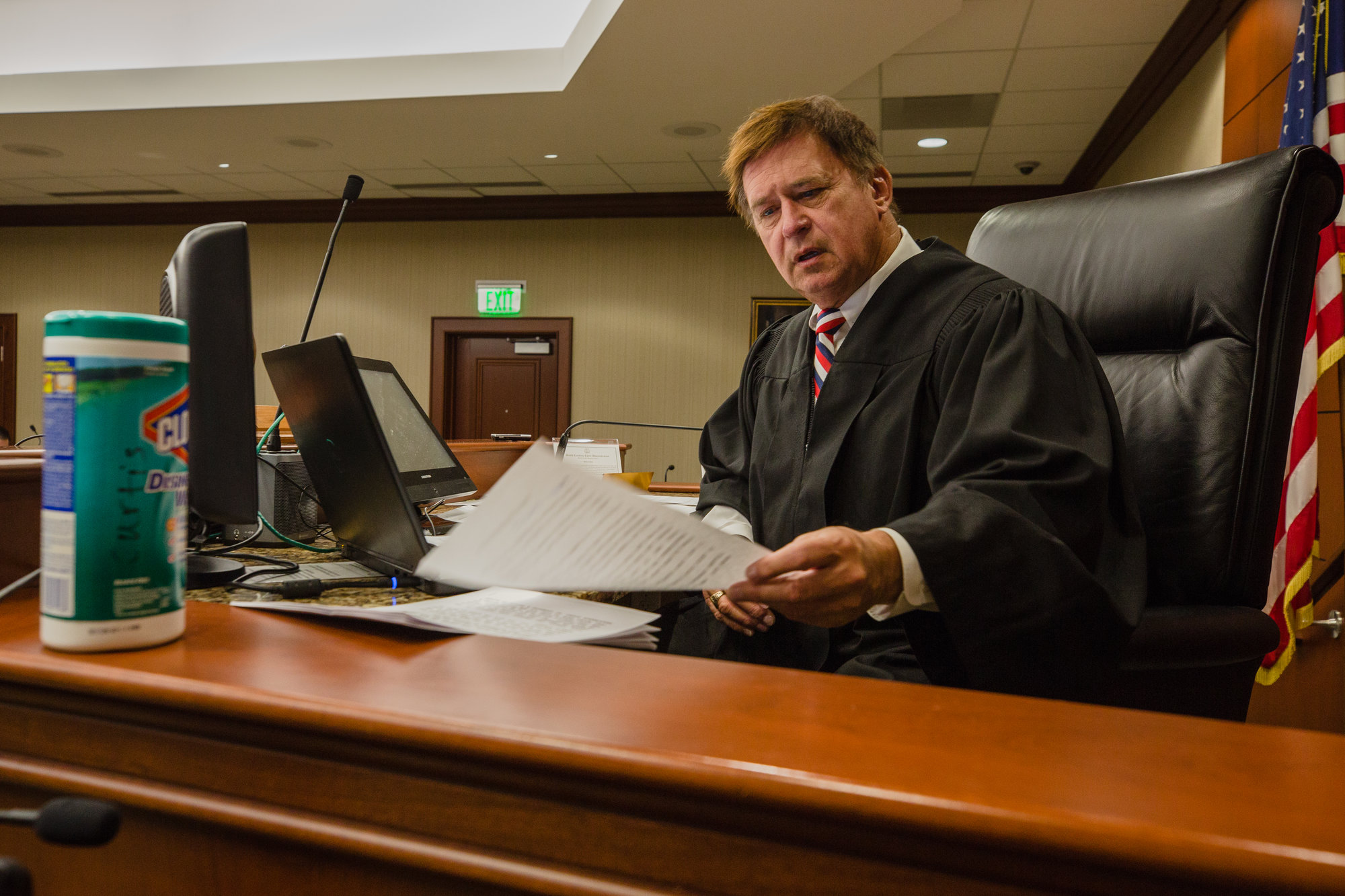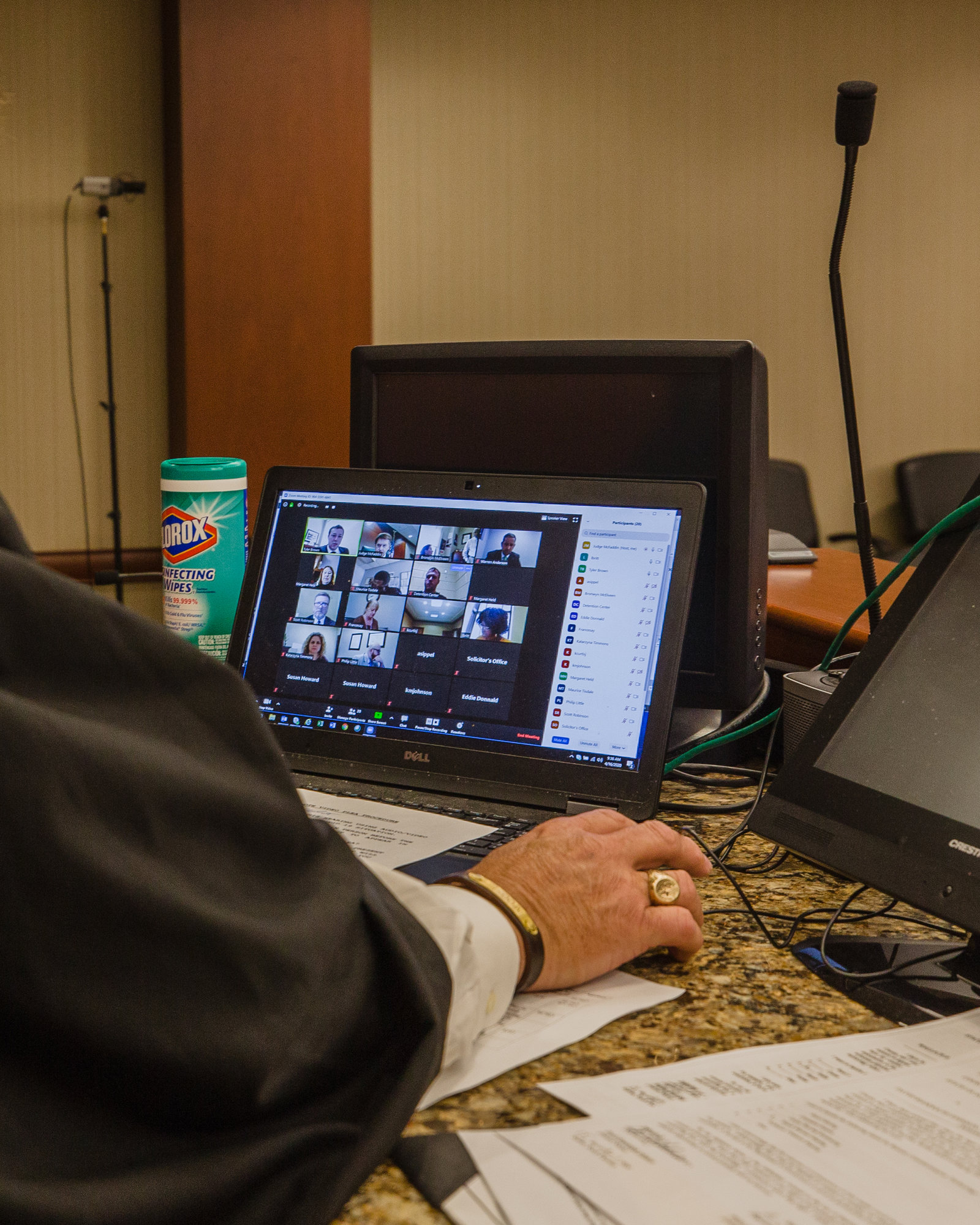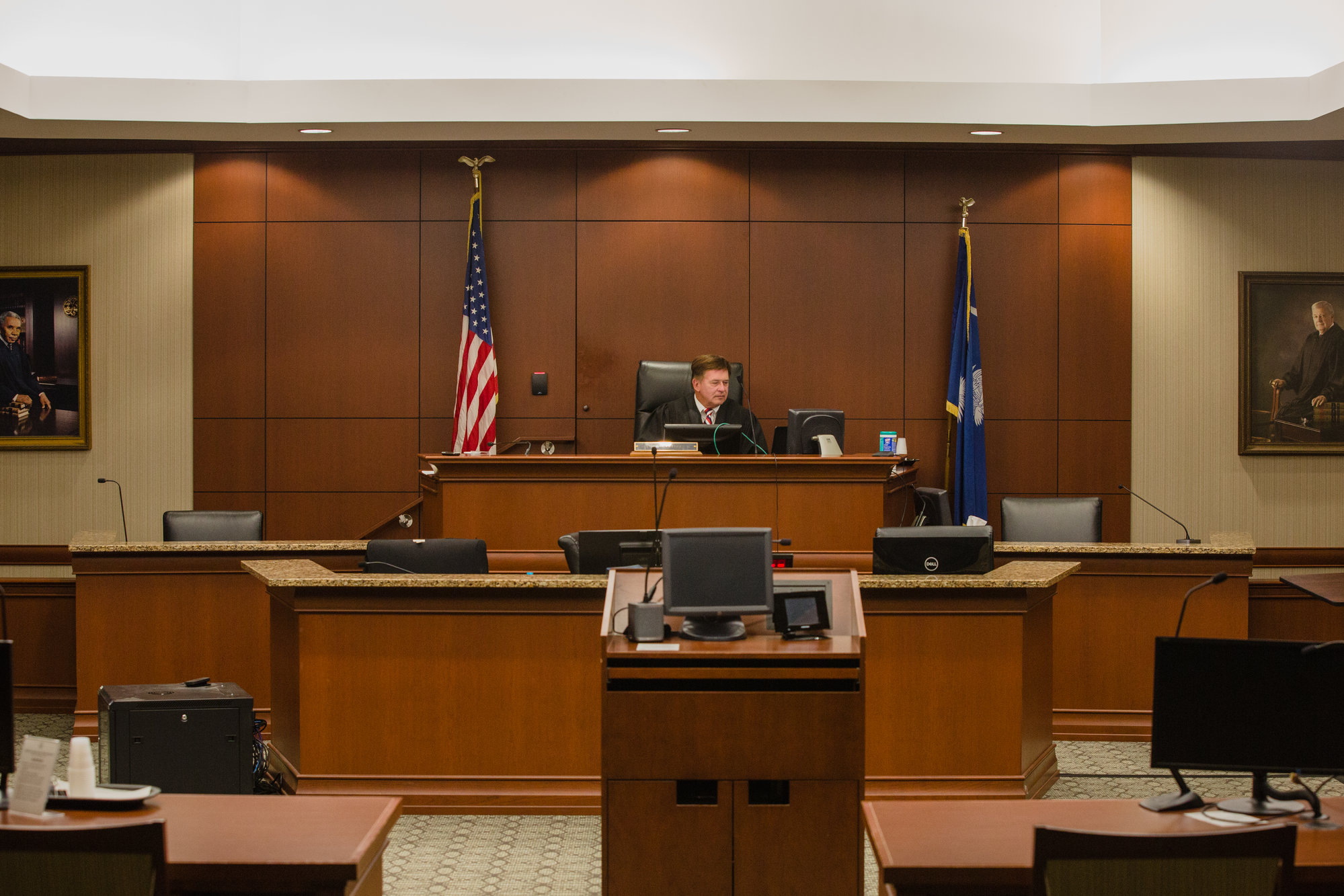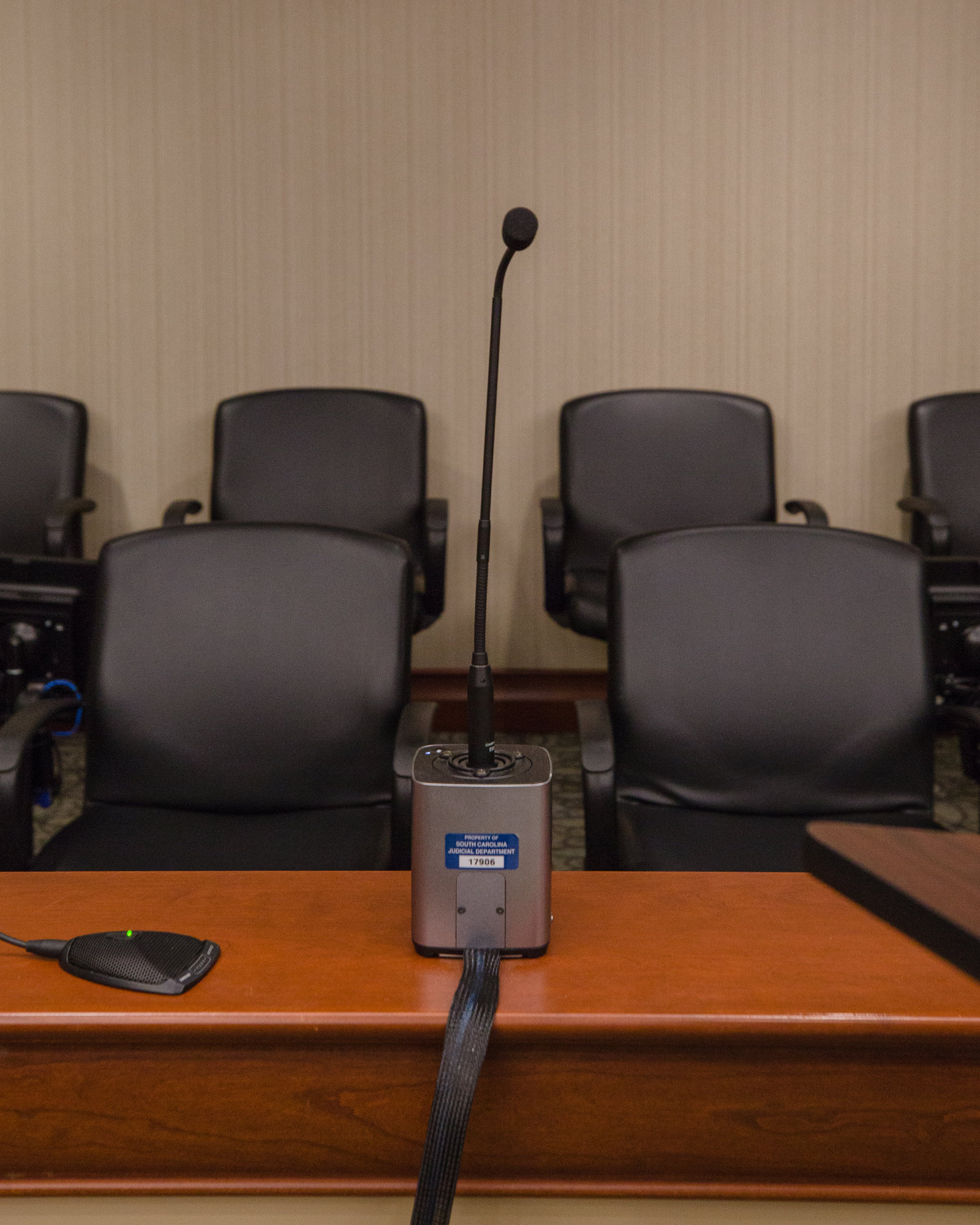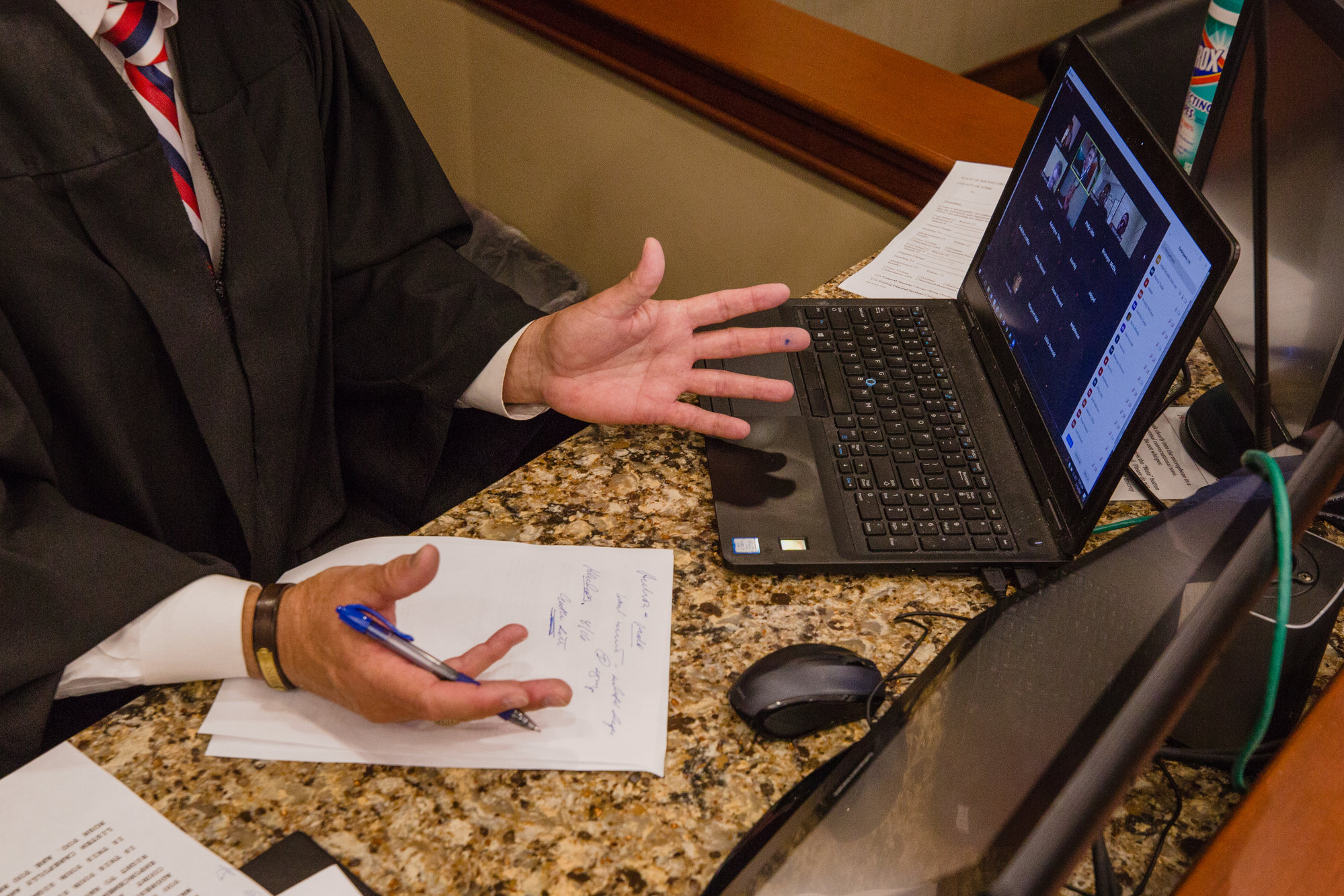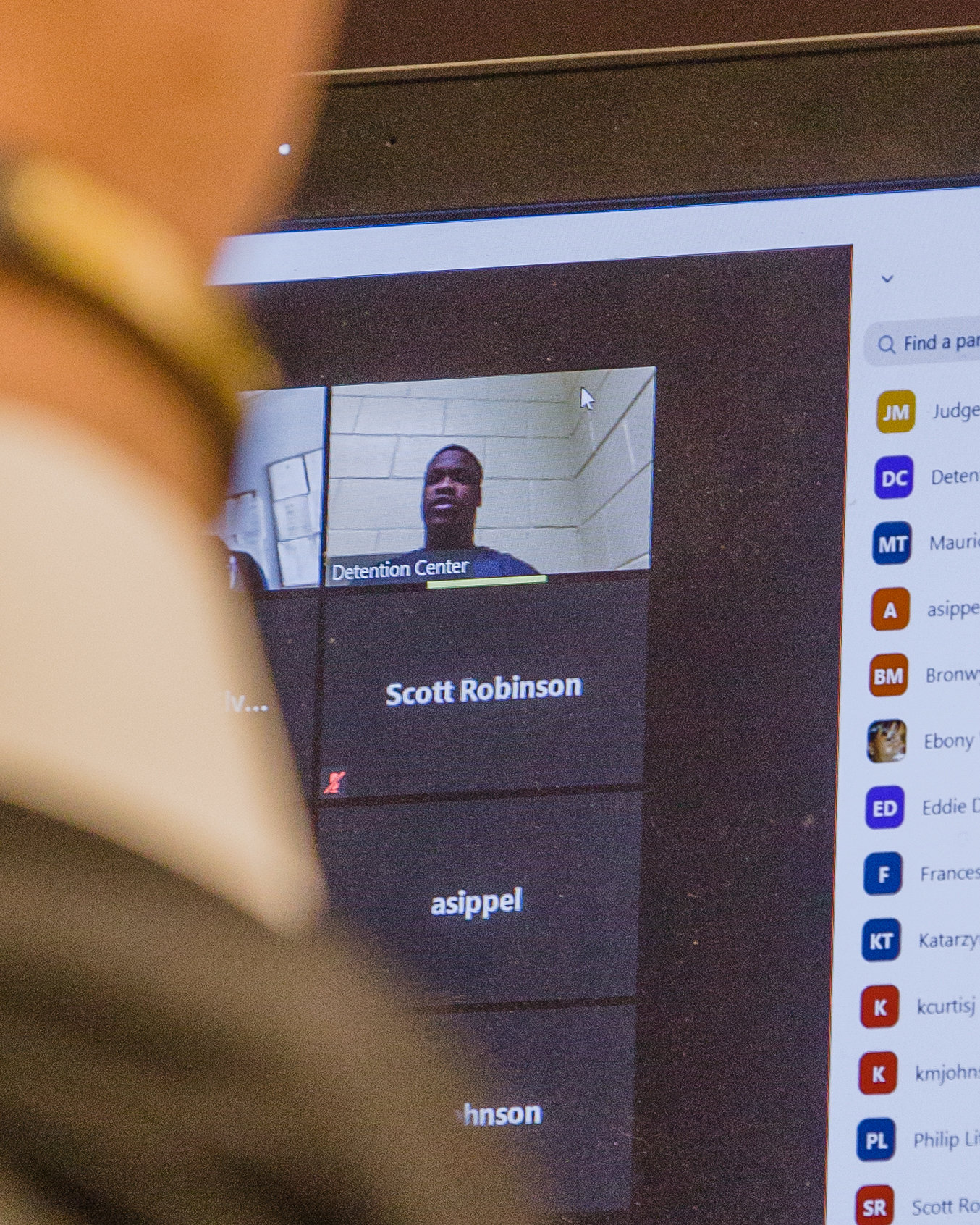Jury trials in Sumter grind to halt as pleas, jail hearings move online amid virus
shelbie@theitem.com
All our coronavirus coverage is free to the public. It’s the right thing to do as a public service to our community. If you find this article helpful or informative and want to support our continued coverage, please support us with a tax-deductible donation.
To find all our coronavirus coverage, including helpful local resources and website links, click here.
---
Jury trials are on hold, months worth of court cases are being delayed, and courthouses sit empty as COVID-19 hits the breaks on much of the judicial process across the U.S.
However, Sumter County judges, attorneys and public defenders continue to bring justice to the community. Whether it be working from home with telecommunication formats to going into work every other day, local officials will not let crime go unnoticed amid COVID-19.
"We are maintaining our office presence by way of rotation," Third Circuit Solicitor Ernest "Chip" Finney III said. "We're not all in the office together like we usually are."
Finney said all court hearings and jury trials have been suspended by South Carolina Chief Justice Donald Wayne Beatty, so they're working on other casework.
"We're not doing any real work in terms of going to court," Finney said. "We're trying to work on cases and get them ready so that when this is over with we'll have our cases ready to go to court."
Though they can't go to court, Finney said they are proceeding with some cases that can be dealt with through telecommunication formats.
"The only other thing that we're doing, which is new, is one day a week we're having video hearings for people who need bond hearings, people who have probation hearings and things that are somewhat of an emergency basis," Finney said.
Many courtrooms across the country are handling minor cases or emergency hearings by video calls.
"It's very new. It's surprisingly good in terms of getting things accomplished," Finney said. "We are doing the best we can, and we look forward to keeping up the work and keeping up the effort, but every week that goes by, we are either not having the grand jury come in to hear new cases or we're not having court where we can move 70-80 cases in a week."
Not only does this create a backlog in the court system, but it could keep people locked up longer in unsafe jail conditions, which can violate a defendant's constitutional right to a speedy trial, according to The Associated Press.
Judge Kristi Curtis, the woman who spearheaded the teleconference process in Sumter County, made it her goal, along with other local officials, to keep the court system moving in order to alleviate some of the pressure in the local jail.
"We don't want people languishing in jail just for want of being able to come in front of a judge," Curtis said. "We want to protect all of the participants as much as we possibly can from exposure. We've got to be able to protect the defendant's constitutional rights at the same time."
Third Circuit Public Defender Edgar "Eddie" Donnald, along with others across the state and country, is doing what he can to help the inmates at the Sumter County Sheriff's Office Detention Center.
"We're doing everything that we can to continue to deal with the people who are in jail. The jail has initiated a video conferencing system that we're able to talk with individuals privately and try to address the issues that they have," Donnald said. "If they're in a situation where they need to be addressed by the court system, we have the ability to get them in front of the judge."
Donnald said they haven't been getting as many cases taken care of because they're working on a timer through video chat.
"It's not as busy as normal because we can only do it via teleconference, and because the time is limited, we've been focusing on people in the detention center who look like they can probably get out of the detention center as result of a plea or as result of a hearing," Donnald said.
Donnald said while he thinks this is an innovative and logical approach to keeping the court system moving, it's harder for defenders to try to keep in touch with their defendants.
"It puts us in a spot where we're constantly trying to advocate for the defendants, and it's hard to do that," Donnald said. "We certainly understand the need to put the safety of the community at the forefront."
One worry that Donnald has is the potential backlog the court system will experience when life gets back to normal.
"We haven't been able to receive as many applications as we normally do," Donnald said. "I expect when the court system opens back up, we'll be flooded with new applications, and we'll just have to get to them as best as we can."
Sumter County Clerk of Court Jamie Campbell predicts that the court system will be about a month behind with the jury trials and hearings on hold.
"I've never dealt with this before. I don't think anybody has dealt with this. It's going to be a challenge," Campbell said. "One of our goals in family court is to try to get caught up before the end of the year, and the longer we wait, the more dismal my prediction is about that. We're trying, and we're going to try to do all that we can to try and get caught back up as soon as we can. It's just going to be a scheduling nightmare."
Judge George McFaddin Jr. agrees that there will be a backlog, but he isn't fearful of it being as big as others predict because they are continuing to move cases each week.
"The purpose of this is to address the inmate situation at the jail and to move these cases as quickly as we can so that a large build up or backlog of cases isn't created out at the jail," McFaddin said. "This could also include non-jail defendants who wish to offer guilty pleas to the court."
For three weeks now, the Sumter County court system has been working under these restrictions, but McFaddin said it hasn't been an issue, nor is it new to him.
"During my family court days, we often did hearings where the judge would be here at the courthouse and the other person would be at the local detention facility," McFaddin said. "The only difference for me is that instead of one or three of us being involved, we've got multiple people at multiple locations doing the remote location hearings."
McFaddin said he finds it odd that everyone is not together under one roof, but they're follow the same procedures as usual, he said. There's just a computer screen between everyone now.
More Articles to Read

